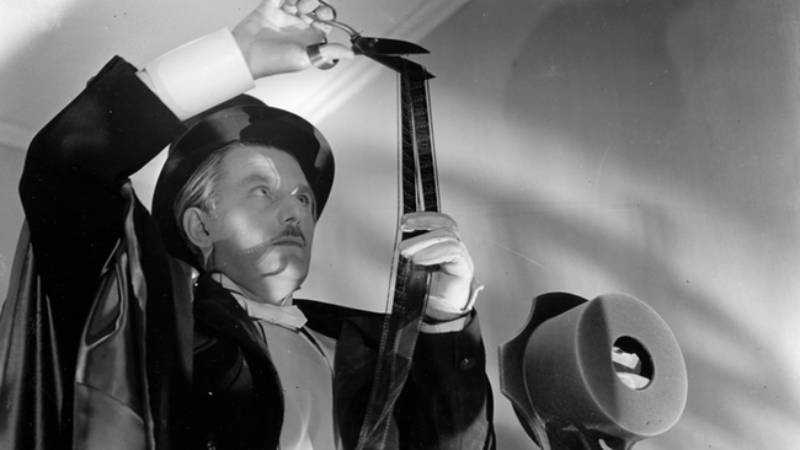




Ten loosely-connected love and lust stories take place in Vienna at the turn of the 20th century. Soldier and prostitute, husband and wife, actress and poet, actress and Count, and many other unorthodox duos have brief and intense romantic affairs. Some last years, others just a few minutes. Some are just an embrace, others are laced with ardent sexual interaction. Obviously there is no nudity and sex. This is a film made in 1950, six years before Brigitte Bardot challenged sexual taboos in cinema with her curvaceous body at full display, in Roger Vadim’s And God Created Woman (1956).
On the other hand, the conversation are very candid, a sexual frankness completely alien to countries such as the UK and the US. These characters are bold as brass in their desire to love, cheat and lie. There are overt references to the topics of prostitution and adultery, and some very frisky, randy and proactive female characters. A mistress tells her married lover: “you wife is probably doing the same”, suggesting that adultery was the common currency, while also challenging his toxic masculinity. This is just one of the many dirty remarks that dot this cheeky, highly conversational movie affair. It would take Hollywood another 10 years before an unmarried man and a woman could merely share a bed (in the opening sequence of Hitchcock’s Psycho).
Featuring the biggest divas and heartthrobs from that era – Anton Walbrook, Simone Signoret, Serge Reggiani, Simone Simon,Daniel Gélin -, and marketed as an “anthology film”, La Ronde takes viewers on a romantic tour of the Austrian capital. A circular tour. A narrator (Anton Walbrook), credited as Master of Ceremonies, gently (and sometimes slightly confusingly) ties these overlapping stories together in round fashion. He sits on a merry-go-round, surrounded by a rotating stage and a carousel of images, in a movie that repeatedly references its own title. Love is a spinning wheel of fortune, it seems. In the end, it all comes full circle.

This is a movie bursting with inventive storytelling and framing devices. We often observe the characters from a distance, from behind a pillar or a bush, often with on a canted angle, as if reminding viewers that the nature of these liaisons is profane, and therefore it’s best to watch them surreptitiously. At one point, our adorable raconteur drags the film out of the reel, forcibly rewinding and rewriting the story. He also changes clothes and background (the urban landscape) in full view of audiences, reminding us of the myriad possibilities of cinema. This is a film unabashed in its theatricality, and also in its ability to subvert time and space. In other words, cinema has the power to take viewers wherever it wants, be that in the past, the present or the future.
The choice to have the story set 50 years earlier and in a foreign nation is a very peculiar one. The narrator explains: “the past is certain, we don’t know what the future brings”. This is a world still healing from World War 2. The indomitable desire to love and the fear for the future are entirely palpable. The fact that the film is entirely spoken in French (and its sensibility/ sexual frankness are indeed very “je t’aime, mon amour”) while set in a German-speaking city is probably explained by the fact that the director Max Ophüls was German. This could be interpreted as a gesture of reconciliation with the Teutonic friends (the invaders of yesteryear). Despite the claim that the story could take place anywhere in the world, this is a very French endeavour.
A 4k restoration of La Ronde is out in UK and Irish cinemas on Friday, September 8th, as part of the Save Curzon Mayfair campaign on Friday. The iconic cinema, built in 1934, was the first Curzon venue but is now in jeopardy. They explain why the film choice: “Max Ophüls’ magical portmanteau satire La Ronde generated 541,705 admissions at Curzon Mayfair during a run that lasted from 27 April 1951 to 9 October 1952. Over the years, the cinema has championed a diversity of brilliant films, from La Dolce Vita [Federico Fellini, 1961] to Howard’s End [James Ivory, 1992] and Parasite [Bong Joon-ho, 2019]. We need your support to continue that work. This rerelease is also in support of MediCinema”.
















